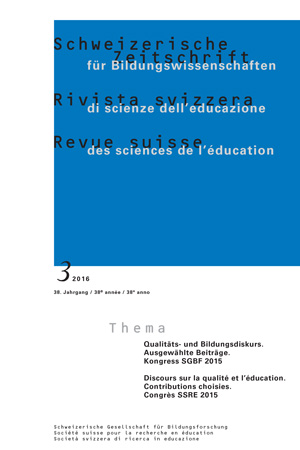Dominant educational practices and social inequalities at school
DOI:
https://doi.org/10.24452/sjer.38.3.4989Keywords:
Educational inequality, teaching practices, curricular developments, literacy, identifications cognitive issuesAbstract
The discourse on the quality of education has been largely developed in Europe, particularly under the impulse of the Bologna process. However, there may be a disconnect between the reality of student results and a discourse on quality which aims to homogenize practices, to formalize them,, with the objective of a continual improvement of these practices and school effectivness.
This article aims to analyze how the difficulties encountered by students from disadvantaged backgrounds may result from daily and dominant classroom practice. The difficulties are seen as the result of the intersection of learning environments built by schools, teachers and educational practices and how students understand the issues and work there. The purpose is to understand how dominant educational practices can prevent children from learning. These dominant practices appear as the result of changes in the French school system, in its goals, particularly in terms of curriculum reform. The article describes these changes and connects them to the difficulties constantly encountered by pupils from disadvantaged backgrounds.
Downloads
Downloads
Published
Issue
Section
License
Copyright (c) 2016 Élisabeth Bautier

This work is licensed under a Creative Commons Attribution 4.0 International License.



